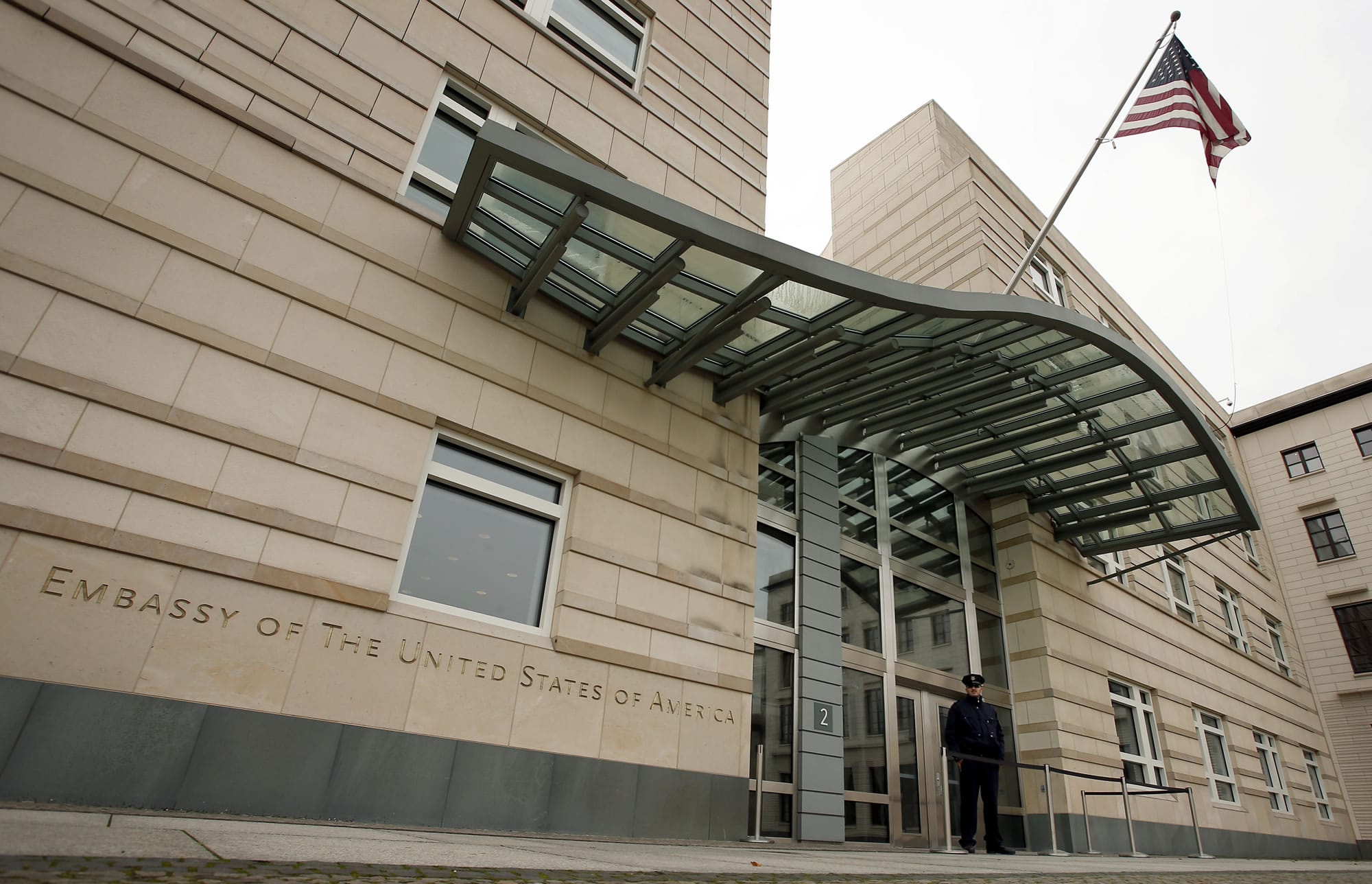BRUSSELS — Indignant at reports of U.S. electronic espionage overseas, the leaders of Germany and France said Friday they will insist the Obama administration agree by year’s end to limits that could put an end to alleged American eavesdropping on foreign leaders, businesses and innocent citizens.
German spy chiefs will travel to Washington shortly to talk with U.S. officials about the spying allegations that have so angered European leaders, including whether Chancellor Angela Merkel’s own cellphone was monitored by the National Security Agency.
Merkel and French President Francois Hollande, at the final day of a European Union summit in Brussels, did not offer many specifics on what they want President Barack Obama and his intelligence chiefs to agree to.
A former French counterintelligence agent, however, told The Associated Press the European allies will likely demand the Americans sign off on a “code of good conduct” for intelligence-gathering, and could use the espionage dispute as leverage against the United States in upcoming trade talks.
“I think France and Germany would want guidelines,” said Claude Moniquet, who now directs the Brussels-based European Strategic and Intelligence Center. But he was dubious there would be much change in intelligence agencies’ real-world behavior.
“Everyone swears on the Bible,” Moniquet said. “And after that it’s business as usual.”
This week alone, there have been headlines in the European press about the U.S. scooping up millions of French telephone records and perhaps listening in on Merkel’s calls. A British newspaper said it obtained a confidential memo indicating that the personal communications of up to 35 foreign leaders may have been subject to U.S snooping in 2006.
On Friday, Spanish Prime Minister Mariano Rajoy said in Brussels that he had instructed his foreign minister to summon the U.S. ambassador in Spain to obtain information on news reports that Spain has been a target of U.S. spying, but insisted that his government was unaware of any cases.
In a front-page story, Spain’s leading newspaper El Pais cited unidentified sources that saw documents obtained by former NSA contractor Edward Snowden as saying they showed the agency had tracked phone calls, text messages and emails of millions of Spaniards, and spied on members of the Spanish government and other politicians.
Hollande, the French president, said his country and Germany decided to seek a “framework of cooperation with the United States so that the surveillance practices end. We fixed a deadline by the end of the year.”
“They told us it was in the past and now there’s a will to organize things differently,” Hollande told a post-summit gathering of reporters. “Fine, let’s do it.”
France’s leader seemed to object especially to any use of state intelligence assets to spy on innocent people or to promote a nation’s trade goals or companies.
“Protection of virtual life is not just the protection of leaders, who have cellphones just like everyone else. It’s the protection of all citizens,” Hollande said. “The protection of personal information should be guaranteed in Europe and demanded of the intelligence services.”
Economic spying can affect markets, prices and mergers and acquisitions as well as affairs of state, Hollande said. “It’s there that the surveillance can have the most consequences. … On innovation and research, there’s also surveillance. That’s why the major French enterprises, include tech companies, are in a program to give them protection.”
Merkel told a separate news conference that “what we seek is a basis for the cooperation of our (intelligence) services, which we all need and from which we all have gotten very much information … that is transparent and clear and that lives up to the character of a relationship of allies.”
The chancellor said intelligence chiefs from her country and France would hold separate one-on-one discussions with the Americans, but pool information.
As a first step, the heads of Germany’s foreign and domestic intelligence agencies will participate in talks with the White House and the NSA, said German government spokesman Georg Streiter.



